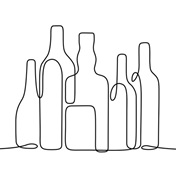The chance that a teenager or young adult will receive a prescription for a controlled medication has nearly doubled in the last 15 years in the US, according to a new report.
In 2007, one out of every nine teens and one out of six young adults in their 20s received prescriptions for medication that have the potential for abuse, such as pain killers, sedatives and stimulants.
"This study indicates that there are many more abusable prescriptions in people's medicine cabinets, in homes where there are children," said Dr. Cindy Thomas at Brandeis University in Waltham, Massachusetts, who reviewed the findings.
Just because teenagers and young adults receive these prescriptions, however, doesn't mean they will abuse them, or pass them onto others, cautioned study author Dr Robert Fortuna of the University of Rochester in New York.
Whether the increase means young people are getting too many of these prescriptions, and doctors should cut back, is also not clear from this study, he said.
Discussing risks of controlled medication
What the study does do, he noted, is reinforce the importance of communicating the risks of controlled medications to young people and the importance of monitoring their use.
"Physicians need to have open discussions with patients about the risks and benefits of using controlled medications, including the potential for misuse and diversion," Dr Fortuna said. "Patients should also be monitored closely to ensure that their symptoms are adequately being treated and to ensure that prescriptions are being used as prescribed."
Common reasons young people received prescriptions for opioid drugs was back or other musculoskeletal pain, injury, insomnia and other types of pain.
Psychiatric problems elicited prescriptions for Ritalin and other stimulants for attention deficit hyperactivity disorder (ADHD), as well as sedatives.
Focusing on controlled medications, the study was based on data from 4,304 doctors and 3,856 clinics and emergency departments.
Results of study
In 1994, only 6% of teens received a prescription for a controlled medication. By 2007, more than 11% were getting them adding up to 2.3 million doctors' visits in which a drug of this category was prescribed, the authors reported online in Paediatrics.
The same trend held among young adults, who saw the rate of prescriptions increase from 8% to 16% of doctors' visits within the same time period. In 2007, a total of 7.8 million visits led to a prescription for a controlled medication for a young adult.
There are a number of reasons why these prescriptions have likely increased, Dr Fortuna noted.
There has been more advocacy for the importance of treating pain, regulations have changed, and physicians have likely become more comfortable with opioids, he said. In the case of sedatives, newer drugs have been marketed heavily.
Dr Thomas from Brandeis said the increases "are clearly alarming" and raise questions about whether each prescription is warranted. "One has to question the increased diagnosing and treatment of psychiatric conditions and lower threshold for prescribing both pain medications and psychiatric medications in this population," she said in an e-mail.
Along with risks, these drugs come with a cost. Most low-dose, generic opioids run at less than $150 (about R1,075) a month. The cost for sedatives ranges from $5 (about R35.50) to more than $100 (about R710) for 15 pills. The cost of ADHD drugs varies widely, from around $10 (about R71) per month to more than $1,000 (about R7,100)
(Reuters Health, Alison McCook, November 2010)




 Publications
Publications
 Partners
Partners














